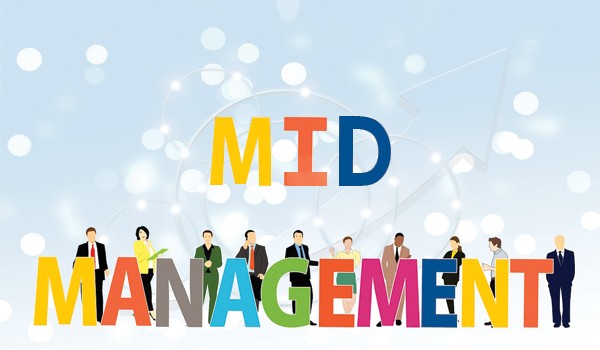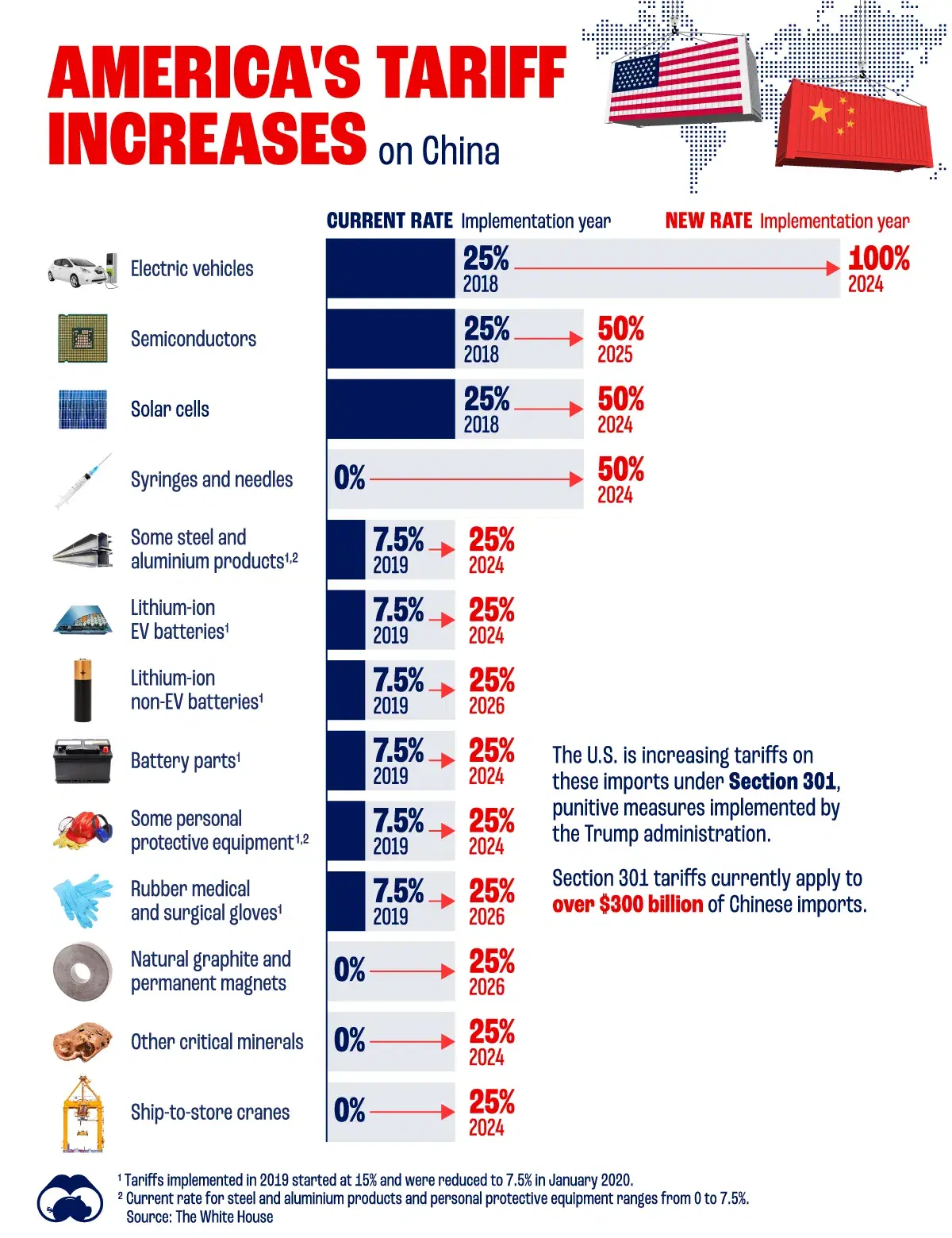Middle Managers: Bridging The Gap Between Leadership And Employees

Table of Contents
The Critical Role of Middle Managers in Communication
Middle managers are the linchpin of effective communication within an organization. They are responsible for translating high-level strategic directives from leadership into actionable tasks for their teams. Simultaneously, they act as a vital conduit, relaying employee feedback, concerns, and suggestions upwards. This bidirectional communication flow is essential for ensuring alignment, transparency, and a shared understanding of organizational goals.
- Effective communication strategies for conveying company vision and goals: Middle managers must master techniques like storytelling, clear and concise messaging, and using visual aids to effectively communicate the "why" behind strategic initiatives. This ensures buy-in and understanding from their teams.
- Techniques for gathering and relaying employee feedback constructively: Regular check-ins, anonymous feedback mechanisms, and open-door policies facilitate constructive employee feedback. Middle managers must then effectively summarize and relay this information to leadership, advocating for their team's needs while maintaining objectivity.
- Overcoming communication barriers and fostering open dialogue: Addressing language barriers, differing communication styles, and creating a psychologically safe space for open dialogue are critical. Active listening, empathetic communication, and clear, consistent messaging are essential tools.
- Utilizing different communication channels effectively (email, meetings, informal communication): Understanding the strengths and limitations of each communication channel and choosing the appropriate method for the message is essential. This might involve using email for formal announcements, meetings for collaborative problem-solving, and informal conversations for building relationships and addressing immediate concerns. Effective middle management communication requires flexibility and adaptability.
Middle Managers as Mentors and Motivators
Beyond communication, middle managers play a crucial role in employee development and motivation. They act as mentors, guiding their team members, providing support, and fostering their professional growth. Their ability to inspire and motivate directly impacts team performance and overall productivity.
- Mentorship programs and their benefits for both employees and the organization: Formal or informal mentorship programs can significantly enhance employee skill development, improve retention rates, and foster a culture of learning and growth within the organization.
- Effective strategies for motivating teams and fostering a positive work environment: Recognition programs, team-building activities, and creating a culture of appreciation all contribute to a positive work environment. Effective middle managers understand their team's individual motivations and tailor their approach accordingly.
- Performance management techniques to improve employee productivity: Regular performance reviews, constructive feedback, goal setting, and providing opportunities for skill development are all key aspects of effective performance management.
- Identifying and addressing employee concerns and challenges: Middle managers must be proactive in identifying potential issues, listening empathetically to employee concerns, and providing support or escalating problems as needed. This proactive approach prevents small issues from escalating into larger problems.
Middle Managers and Conflict Resolution
Inevitably, conflicts arise in any workplace. Middle managers are often on the front lines of conflict resolution, mediating disagreements between team members or between employees and leadership. Their ability to handle conflicts effectively is crucial for maintaining a harmonious and productive work environment.
- Strategies for effective conflict resolution and mediation: Middle managers need training in conflict resolution techniques, including active listening, empathy, and finding mutually agreeable solutions. They should facilitate discussions, not impose solutions.
- Identifying the root causes of conflict within teams: Understanding the underlying causes of conflict, whether it's personality clashes, unclear roles, or resource scarcity, is essential for developing effective solutions.
- Promoting a collaborative and respectful work environment: Middle managers set the tone for their teams. Promoting open communication, mutual respect, and a collaborative spirit prevents conflicts from escalating.
- Escalating conflicts appropriately when necessary: Knowing when to escalate a conflict to upper management is crucial. Middle managers should only escalate when they’ve exhausted all internal resolution strategies.
Developing Effective Middle Management
Investing in the development of middle managers is an investment in the overall success of the organization. Providing training, mentorship, and opportunities for growth empowers them to better fulfill their crucial roles.
- Essential skills training (communication, leadership, conflict resolution): Regular training in key areas helps middle managers enhance their skills and stay updated on best practices.
- Mentorship and coaching opportunities for middle managers: Providing experienced mentors or coaches helps middle managers learn from experienced professionals and refine their leadership styles.
- Performance reviews and feedback mechanisms for ongoing improvement: Regular performance reviews with constructive feedback provide middle managers with opportunities for growth and improvement.
- Opportunities for professional development and career advancement: Investing in their professional development shows your commitment to their growth and retention. This can involve offering further education, attending conferences, or taking on new challenges.
Conclusion
Effective middle managers are indispensable for organizational success. Their ability to facilitate communication, mentor and motivate their teams, resolve conflicts, and adapt to change directly impacts employee morale, productivity, and overall organizational effectiveness. By fostering effective communication, promoting mentorship, and providing ongoing training, you can empower your middle managers to bridge the gap between leadership and employees. Investing in your middle managers is investing in your company's future. Start building a stronger bridge today by implementing strategies to improve your middle management team.

Featured Posts
-
 Ufc Des Moines Mma Betting Predictions And Best Bets Today
May 04, 2025
Ufc Des Moines Mma Betting Predictions And Best Bets Today
May 04, 2025 -
 Nhl Playoffs Showdown Saturdays Crucial Standings Battles
May 04, 2025
Nhl Playoffs Showdown Saturdays Crucial Standings Battles
May 04, 2025 -
 Warren Buffett Denies Supporting Trumps Tariffs All Reports False
May 04, 2025
Warren Buffett Denies Supporting Trumps Tariffs All Reports False
May 04, 2025 -
 Bmw And Porsches China Challenges A Wider Industry Issue
May 04, 2025
Bmw And Porsches China Challenges A Wider Industry Issue
May 04, 2025 -
 Corinthians X Palmeiras Data Horario Onde Assistir E Escalacoes
May 04, 2025
Corinthians X Palmeiras Data Horario Onde Assistir E Escalacoes
May 04, 2025
